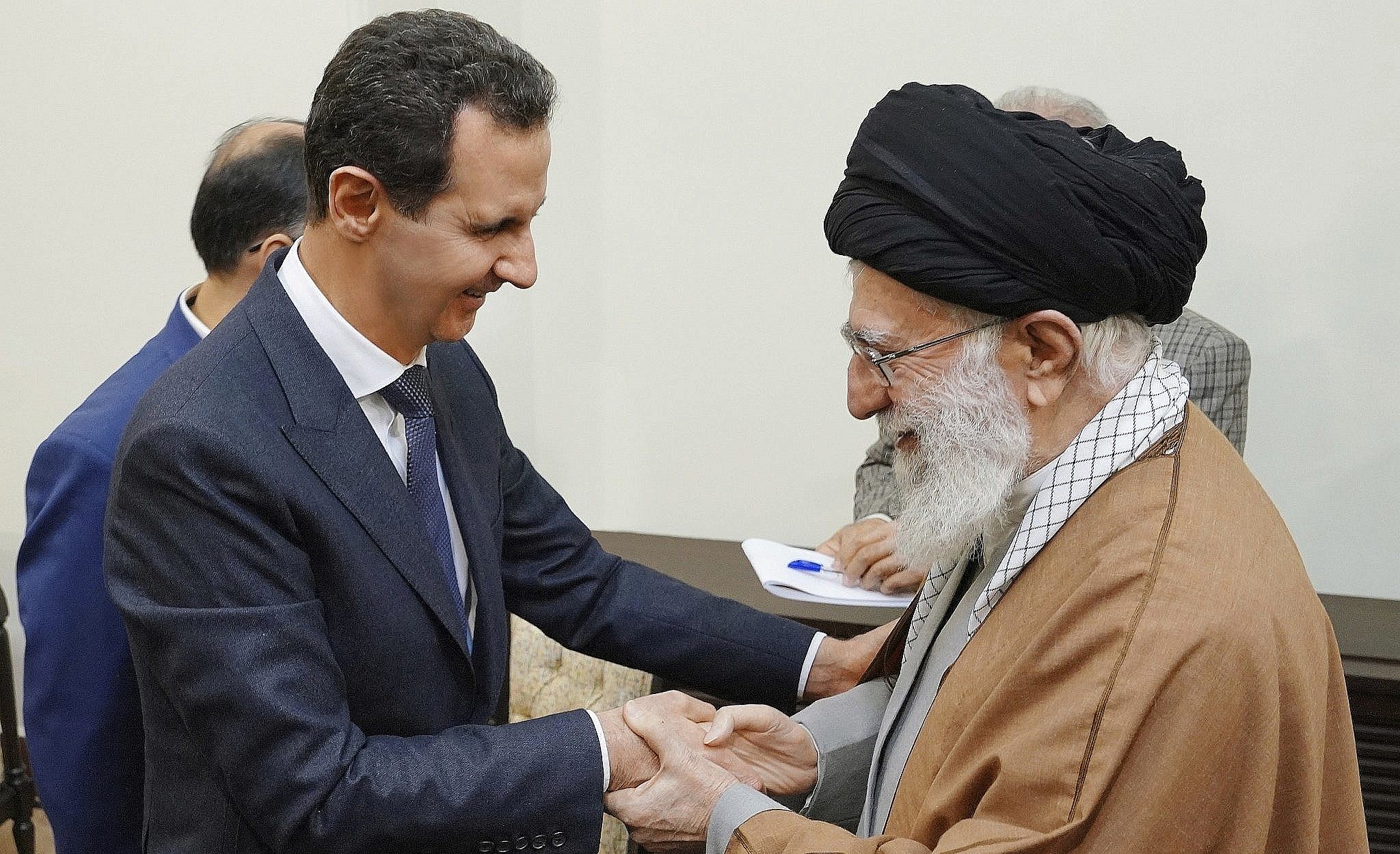Salem AlKetb: Can Syria be turned away from Iran?

There needs to be joined up thinking in how to bring Syria in from the cold without obsessing over its relations with Iran. Other Arab countries need to follow the UAE’s initiatives diplomatically and look at the bigger picture
The question of how to keep Syria out of the orbit of an alliance with Iran is not a new topic of discussion.
This question goes back decades, as the Syrian-Iranian alliance dates back to the regime of former President Hafez Al Assad and is one of the cornerstones of Syrian foreign policy until a new strategic variable emerges that ends this alliance or forces Damascus to align its foreign policy according to new rules of the game that have yet to emerge.
Therefore, to characterize the Emirati-Syrian rapprochement as an attempt to distance Syria from Iran misses the reality. It ignores Emirati diplomacy’s knowledge of the constant and variable factors that determine Syrian foreign policy. The UAE has chosen the right moment to increase its focus on Syria and move closer to a possible breakthrough in relations with Turkey.
Following the recent visit of Iranian Foreign Minister Hossein Abdollahian to Damascus, the UAE also reaffirmed the strength of its relations with Tehran. The UAE has a very clear foreign policy toward Syria. The country is on a steady course of rapprochement with Damascus.
President Al Assad visited the UAE last March. HH Sheikh Abdullah bin Zayed Al Nahyan, Minister of Foreign Affairs and International Cooperation, also visited Damascus in January. This was an important indicator of the development of bilateral cooperation between the two countries. On the other hand, Iran is closely following all Arab, regional and international movements concerning Syria.
Abdollahian has previously expressed his country’s “pleasure at the expansion of Syrian foreign relations,” and this may indeed be true. Restoring power in Syria is in Iran’s strategic interest based on the alliance between Tehran and Damascus, regardless of any calculations and considerations.
But there is no doubt that the limits of Syria’s rapprochement with an Arab or regional party will be an important item in the Syrian-Iranian dialogue. Tehran may want Syria to receive Arab support for reconstruction and economic recovery.
But it certainly does not want Syria to return to its Arab environment as an active player, especially given the conflict of interest between Tehran and most Arab parties and the Gulf region in particular. Iranian policy in Syria is similar to it in Iraq, but differs in detail and in some objectives. But in general, the goal is to build a regional axis under Tehran’s leadership.
Iranian attention to Syria can be expected to increase in the near future as Iraq is on its way to freedom and is uncomfortable with Iran’s attempts to dominate and control decision-making in Iraq. Some observers wonder: can Assad’s Syria be persuaded to distance itself from Iran? The answer is no.
Under current circumstances, it is difficult for Syria to reject an alliance with Iran, especially in light of the West’s continued implacability toward President Bashar Al Assad’s regime and the divided attitude of Arab countries toward it. So, Damascus cannot risk alienation from its Iranian ally now or in the foreseeable future.

Inarguably, it has also taken the Arabs too long to develop a unified position on Syria. The Algiers summit missed the opportunity to reintegrate this great country into the Arab fold. Therefore, it does not make sense to speak of proposals to distance Syria from Iran without seeing the horizon for a pliant Arab stance, at least toward it.
The diplomatic steps taken by the UAE towards Syria are a very effective step.
The strategic vacuum created by the lack of role of the major international powers in the Middle East due to concerns over the war in Ukraine has led some regional parties to fill this gap and forge alliances that threaten regional security, and the rapprochement with Syria at this important time is a deliberate strategic move to compensate for the failure of the Arab regional system to resolve the Syrian issue, and is an equivalent push against the moves of other regional powers.
The major international powers, as well as the Arab ones, have failed to recognize the danger of repeating the strategic vacuum in the Middle East. Similar situations have led Iran to gain a foothold in a number of countries in the region, from which the region continues to suffer today. In this context, the UAE does not seek a break in relations between Iran and Syria.
There is awareness of the background of relations and politics, and it is not new that Syria has an alliance with Iran. So there is a need to move forward without presenting Syria with hard zero-sum options – and there are effective development efforts that the UAE can undertake to support and rebuild Syria.
The UAE is not subject to Western sanctions like other Syrian allies such as Russia and Iran, although this does not negate the fact that the US Caesar Law may undercut the ability of the UAE and other Arab countries to support Syria reconstruction efforts until the US position and policy on Syria is reconsidered.
Taken together, the strategic reality is that it is unlikely to distance Syria from Iran, at least in the current time and circumstances.
However, the most realistic option is the desire to build Arab, Gulf, and UAE influence in parallel with Iranian influence in Syria through the most effective channel in a postwar Syria, namely the economic and investment channel and through reconstruction efforts. This is the only way to balance and perhaps progressively etiolate Iranian influence.
However, this requires strong Arab support for Emirati diplomacy efforts to restore Syria’s Arab and regional role.
The author is an UAE political analyst and former Federal National Council candidate
Want to chase the pulse of North Africa?
Subscribe to receive our FREE weekly PDF magazine












